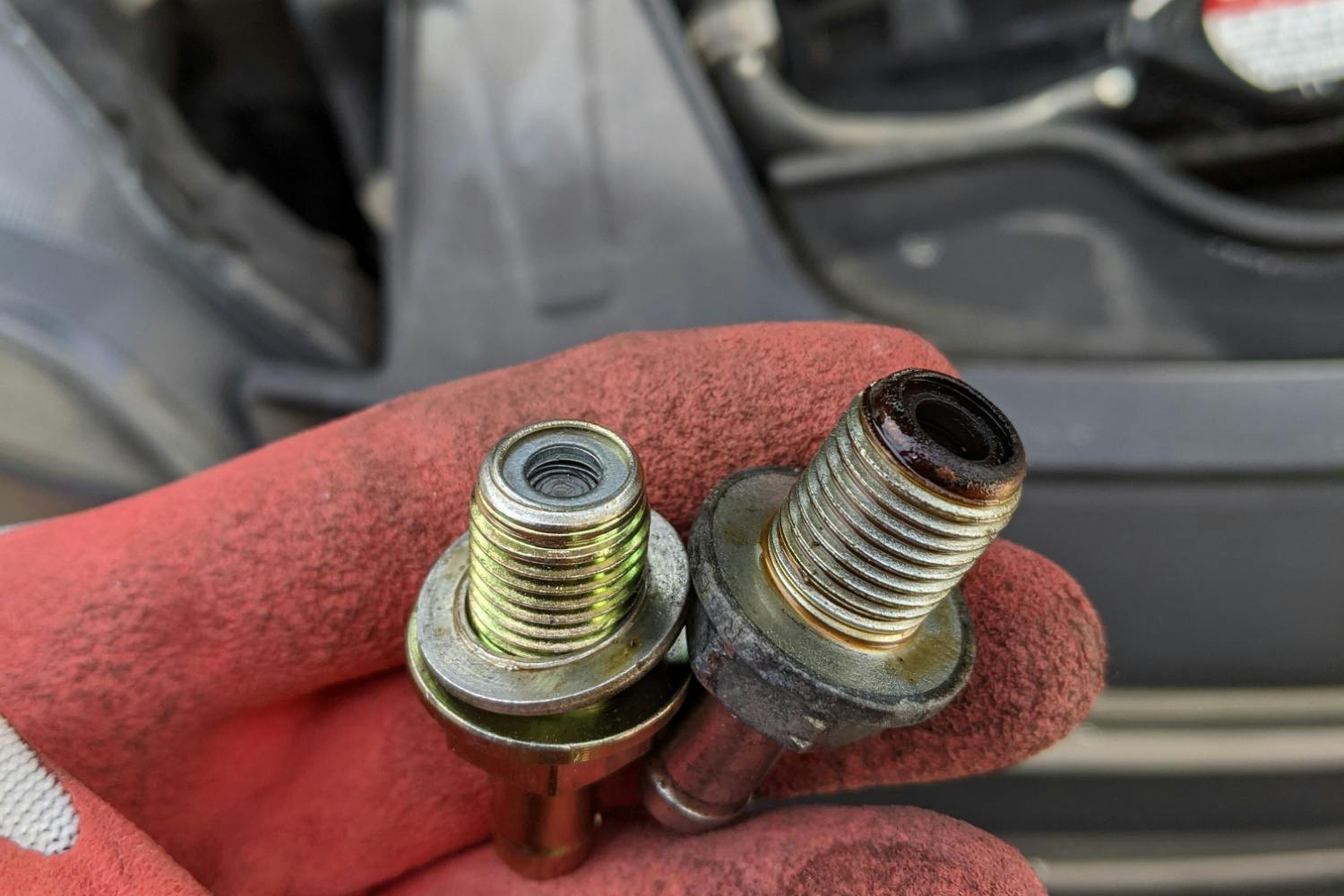How Often Should I Replace My PCV Valve?

PCV valves are not "service parts" in the sense that they have to be replaced at prescribed intervals because, in theory, most PCV valves should outlast the engines they are fitted to. However, the practice is somewhat different, because many factors affect both the longevity and effectiveness of PCV valves. Let us look at a few of the most pertinent factors, starting with-
Oil quality
Although the GF-6 oil standards that came into operation in 2020 mandate that all GF-6-compliant oil formulations must have the same operating characteristics and overall chemical structure, the fact is that most cars on the road today use oil formulations that predate the GF-6 standards.
Thus, since many pre-GF-6 oil formulations have wildly different operating characteristics and chemical compositions, different oil formulations have different effects on engines- even on identical engines. For instance, some engines may experience accelerated rates of sludge formation even if the oil is replaced strictly according to the vehicle's service schedule, while some other engines may exhibit different oil consumption rates with oil formulations and/or brands that are not strictly recommended by their manufacturer.
So, what this means in practice is that the PCV valve on some engines may become clogged up with oil and carbon deposits more quickly than if it used the oil recommended by the vehicle’s manufacturer. Note also that mixing oil made by different manufacturers can greatly increase the rate of sludge formation in almost all engines because the additives in most oil brands typically do not readily mix with the additives in other oil brands. The result of mixing oil brands and formulations also means that some additives in the mixture may become inactive, which results in a general reduction in the effectiveness of the oil, with reduced lubricity as the most important effect.
Long use
Even though most OEM PCV valves have very long service lives, inevitably, long use will eventually cause at least some carbon build-up in the valve. Carbon build-up in various engine components is a normal and expected consequence of normal engine operation, even if the vehicle had been serviced and maintained strictly according to its service schedule.
However, “long use” is a rather subjective concept because on some vehicles, “long use” might be only two or three years, while “long use” on other vehicles might be as long as 10 or more years. As a practical matter, then, there is no single definition of “long use” because the effects of long use depend on, among many other things-
- the engine’s design and displacement
- the engine’s average rate of oil consumption as a function of its mechanical condition
- the way the vehicle is used or driven
- the quality of the oil used in the engine
- the level of adherence to the vehicle’s service schedule
- as well as on the quality of the fuel used. Nonetheless, if you are concerned about the operation of the PCV valve on your engine, it helps to bear in mind that a PCV valve is cheap enough to have it replaced with an OEM part once a year, or even at every oil change.
Doing this will not only remove all of the guesswork about how the quality of the oil and fuel you use may or may not affect the operation of the PCV valve on your engine, but it will also ensure that you always have a PCV valve that operates optimally at all times.
The quality and suitability of the PCV valve currently on your engine
The mere fact that a PCV valve looks to be new is no guarantee that a) the valve is suitable for your engine, and b) that the valve works as intended.
The sad fact is that the global aftermarket is flooded with cheap and substandard knock-offs of parts in all categories, including PCV valves. Moreover, since many knock-offs are well made as seen from the outside, it is often impossible to distinguish between genuine OEM or OEM-equivalent parts and cheap knock-offs. In the case of PCV valves, which are generally cheap even when sourced from dealerships, it is also difficult to use price as an indicator of quality as one normally would with parts that are more expensive than PCV valves.
As a practical matter, though, many engine performance and fuel consumption issues are often misdiagnosed, in the sense that expensive parts and components are often replaced when the root cause of some of these kinds of issues involves defective or malfunctioning PCV valves, which are often substandard knock-offs of genuine OEM parts. In fact, malfunctioning PCV valves or associated hoses and vacuum lines sometimes cause trouble codes P0171 and P0172, which relate to overly lean or rich air/fuel mixtures, respectively. Therefore, even if you have a new or relatively new PCV valve on your engine, be sure to include the PCV valve in the diagnostic plan to find the root cause of the problem when the above codes are present on your vehicle.
